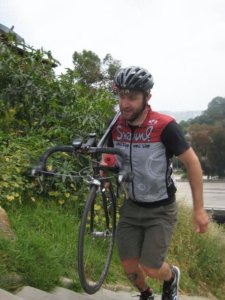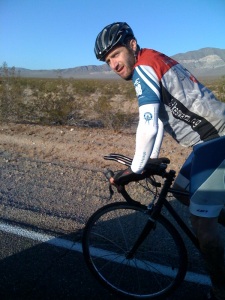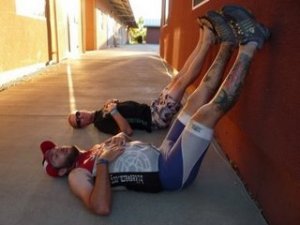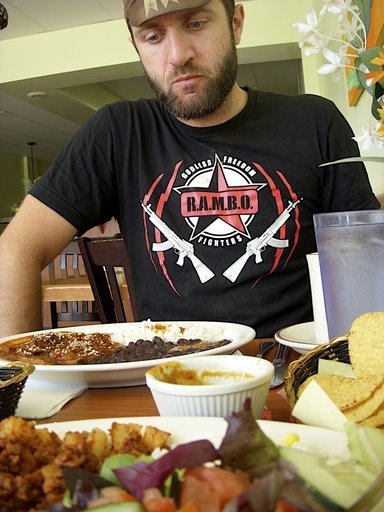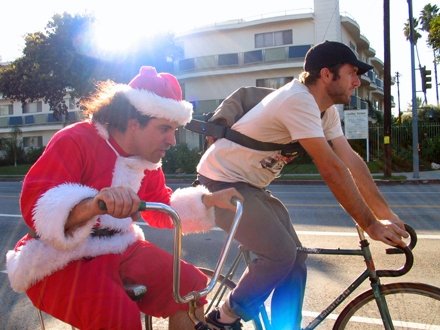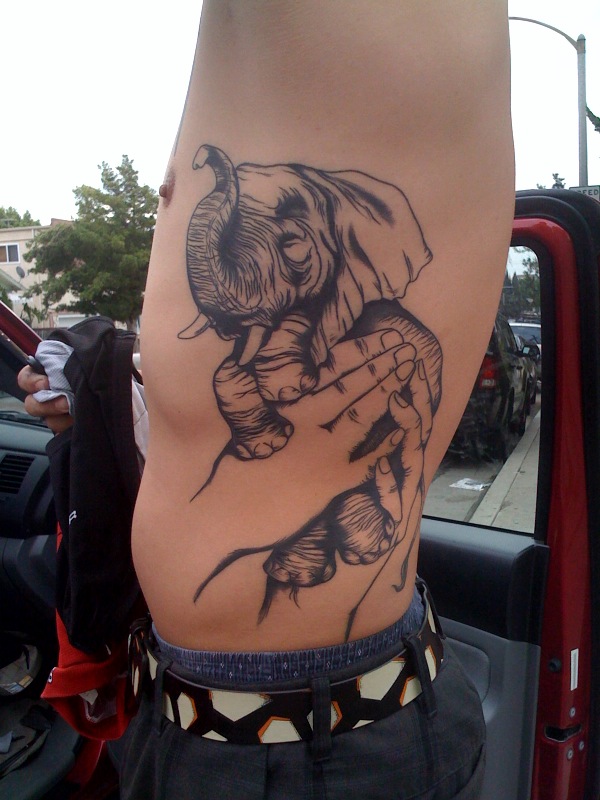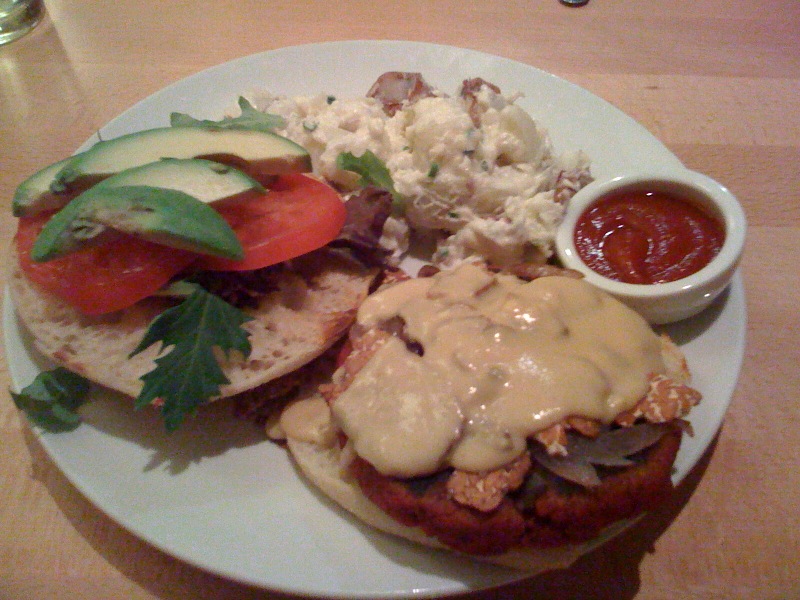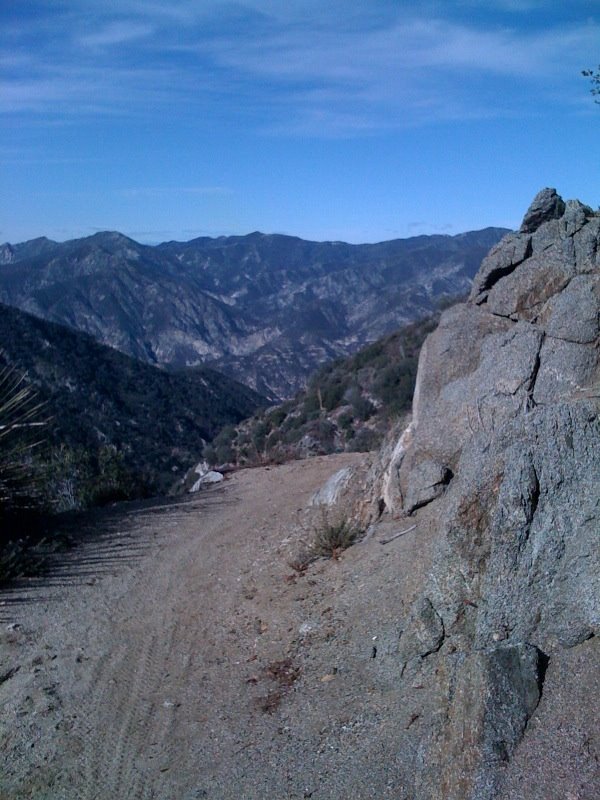I was asked to do this interview after some guys from peak.com came across the research poster I had up at registration the day before the Furnace Creek 508. This second part is more about veganism and Brian. Enjoy.
Tell us about the research you did on raw foods.
In 2006 I did the Furnace Creek 508 on a 4-person fixed gear team with some good friends. We chose Bonobo as a totem because they are egalitarian primates who eat a mostly plant-based diet. All four of us are vegan and we used the race to raise money for the Bonobo Conservation Initiative. At the time my friend and teammate, Brian Davidson, was flirting with raw foods. He ate raw for the whole race and not long after he switched to a completely raw vegan diet.
In 2007 he decided to race solo and purely out of personal interest I initiated a research project to see what his diet would look like. I trained his support team in diet record methodology and then a colleague and I ran the numbers after the race. I really did not know what to expect. He averaged 450 calories an hour! Almost as astounding his macronutrient profile was 65% carbohydrate, 25% fat and 10% protein. He ate a large variety of foods including bananas, raisins, lara bars, cashews and other nuts. We presented our poster at the 5th International Congress on Vegetarian Nutrition at Loma Linda University early this year. The hypothesis was: can you get enough calories for a 508-mile race only eating raw foods? We did not do a micronutrient breakdown (this research was self-funded!), but since most fruits and vegetables are nutrient-dense, I would reckon he did fine here as well.
How was his performance compared to a non-raw diet?
He is such a strong athlete and is continuously improving so I only know that eating raw is not inhibiting his progression. I hesitate to argue that veganism or raw food will make you faster or stronger, but will say that paying close attention to what you eat and focusing on whole foods cannot be detrimental. Brian is still raw and raced the 508 this year and finished in 33 hours, a 3 hour improvement from 2006. But he does not train seriously-he’ll be out till 3am on a Friday night doing a Critical Mass ride and then wake up to go on a road ride. He was asked -and accepted- to be on a raw 4-person RAAM team for 2010 with Organic Athlete. Maybe now he’ll start training seriously?
Would you recommend it?
I would recommend that everyone eat more raw fruits and vegetables. The health benefits are huge, not to mention eating lower on the food chain, taste and convenience. I hesitate to recommend eating completely raw because the evidence that this is MORE beneficial than a varied, whole food diet does not exist. There are not enough raw-foodists who have been doing it long enough to get the research done. I do recommend eating plant-based, whole foods, essentially vegan diets for the health, ethical and environmental benefits. I highly recommend Dr. Larson-Meyer’s book, Vegetarian Sports Nutrition and Organic Athlete’s Guide to Sports Nutrition (which I helped to write) as further resources.
Have you tried it?
I have been vegan for over 12 years and I do eat raw foods, but have never been completely raw. I flirt with it and have recently taken to eating raw breakfasts and huge salads for dinner. When you look closer at the produce section of a grocery store and think of fruits and vegetables as more than snacks, you see the endless possibility of combinations.
Pros/Cons?
I covered this in other questions, I believe.
Thanks Jarrett for the opportunity to answer your questions. I have more stories and ramblings on my blog, nowhip.blogspot.com.
